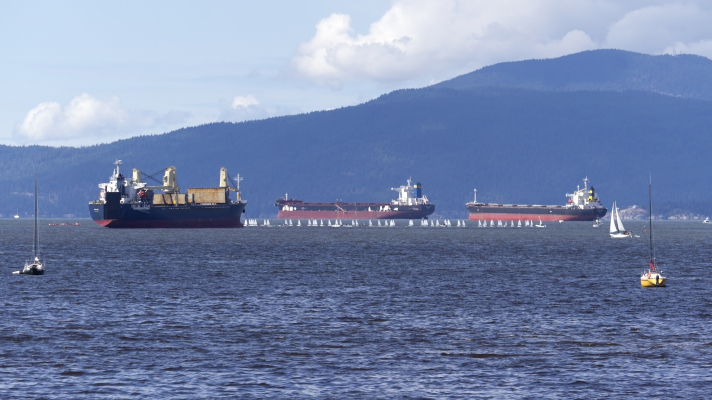With ports in China suspending their operations longer after celebrating the Chinese New Year and China offering force majeure, shipping will probably be impacted by the coronavirus. But it is unclear by how much. In the meantime, the International Chamber of Shipping (ICS) urges ‘there should be no unnecessary restrictions of international traffic.’
On 23 January, China closed the port of Wuhan. Other ports, such as the port of Shanghai, and a lot of Chinese companies will remain closed a week longer after celebrating the Chinese New Year until 9 February in hopes of containing the virus. What happens after this remains to be seen.
‘Shipping from China will decrease’
Transport consultant from the Rotterdam research bureau Ecorys Onno de Jong told the NOS that there are already fewer cargo planes and freight trains departing from China and he expects shipping will follow. With factories in China having moved ever more inland and domestic transport having come to a standstill, he wonders if the ships can still receive their cargo in the coming period.
‘We are going to notice that here, because China exports a lot of goods via the port of Rotterdam,’ says De Jong. He adds that it is still difficult to estimate how big the consequences will really be, particularly because the industry is so complex and it sometimes takes months for effects to be felt.
Measures may result in delays
Around the world measures are taken. Sea links between Wuhan and Dourges, France, have been suspended, for example, as well as a lot of flights to China. The Port of Singapore has announced temperature screening at all sea checkpoints, including ferry and cruise terminals, PSA terminals and Jurong Port, for inbound travelers.
Chinese port authorities will also check the temperature of crew members when entering a port. In addition, a Health Declaration Form has to be handed in before berthing. Substitution of crew is limited or sometimes forbidden in a number of Chinese ports. Crew disembarkation is strictly restricted by all Chinese ports.
A lack of stevedores and restrictions on transport by trucks may cause congestion at ports. In addition, with Wuhan port unavailable, transhipment of cargo by inland feeder vessels in and out the ports in the Yangtze River is affected. Ship repair works in China are delayed due to a lack of workers.
Dutch ports
Although there may be fewer ships coming from China or arriving later than planned, the Dutch ports take little measures in terms of extra checks for the time being. This has to do with the incubation period of the disease, which is one day to two weeks. Dutch newspaper AD says the chance of the coronavirus appearing in the port of Rotterdam is ‘extremely small’ as ships need a month to travel between China and Rotterdam, which would always reveal a case of illness on board.
By law, when a crew member is suspected to suffer from an infectious disease on board, this must be reported.
Force majeure
The China Council for the Promotion of International Trade has announced force majeure certificates will now be offered to Chinese businesses suffering from consequences of the coronavirus outbreak, such as delays and congestion at the Chinese ports. This means companies abroad may be faced with delivery delays.
Force majeure is a common clause in contracts that essentially frees both parties from liability or obligation when an extraordinary event or circumstance beyond the control of the parties occurs.
ICS: ports and shipping can continue to operate
In the meantime, the ICS advises to take steps that limit the spread of the virus, but says ports and global shipping can continue to operate. The instructions reflect advice given from the World Health Organisation (WHO), which stated that if certain measures are taken, there should be no ‘unnecessary restrictions of international traffic’.
‘By implementing the measures in their entirety, we are avoiding the needless closure of any port,’ says Guy Platten, the Secretary General of ICS. ‘Shipping can continue to be the conduit for ninety per cent of world trade, ensuring the steady supply of medicine, food and fuel for consumers worldwide. We are thankful that the WHO has avoided a knee jerk reaction, which would do nobody any favours.’
Advice provided to shipowners highlights the need for:
- Exit screening at ports in the affected areas to detect symptomatic travellers and prevent the exportation of the disease. This includes checking for signs and symptoms and keeping confirmed cases under isolation and treatment.
- Implementing health information campaigns to raise awareness on how to receive assistance if someone is showing symptoms.
- Collaborating with public health authorities for case management on board ships, should a traveller with symptoms be detected.
Should the WHO recommendations change with the closure of specific ports for medical reasons, ICS recommends that the port in question and shipowners follow this advice.








